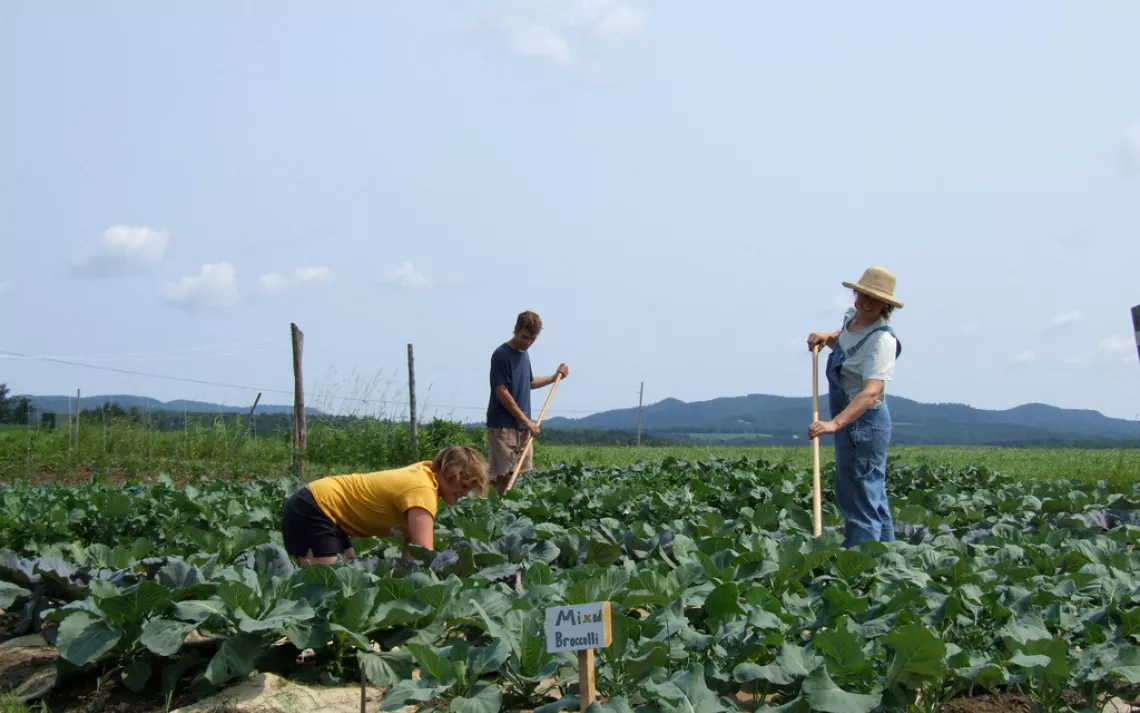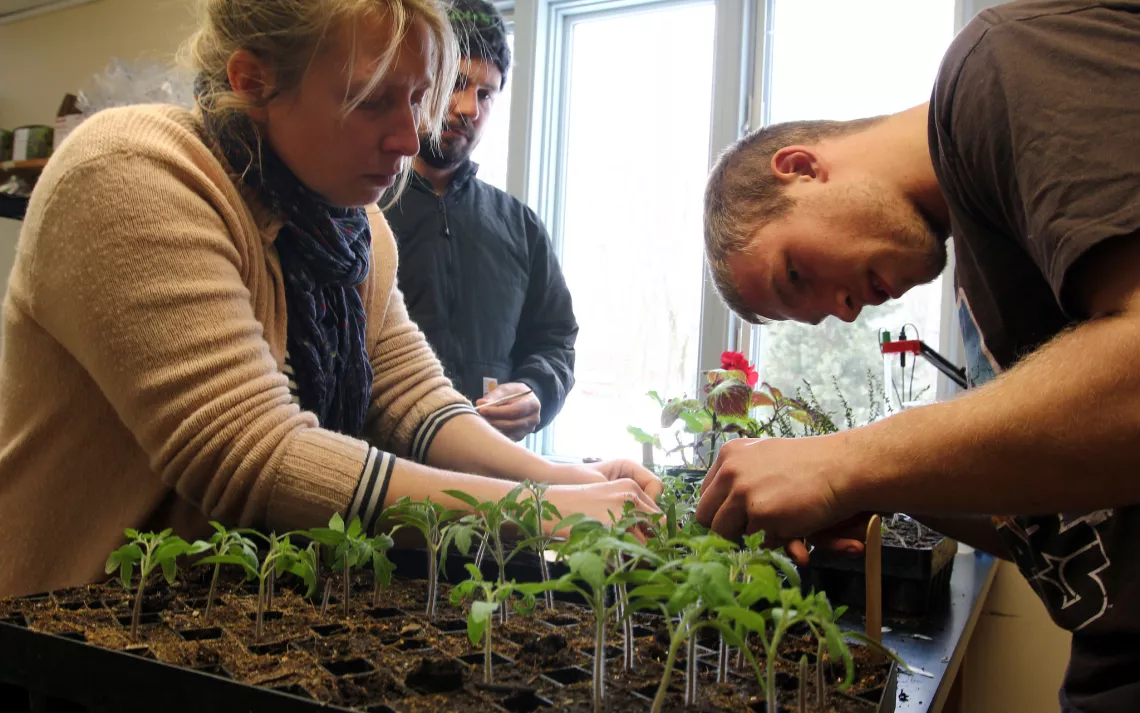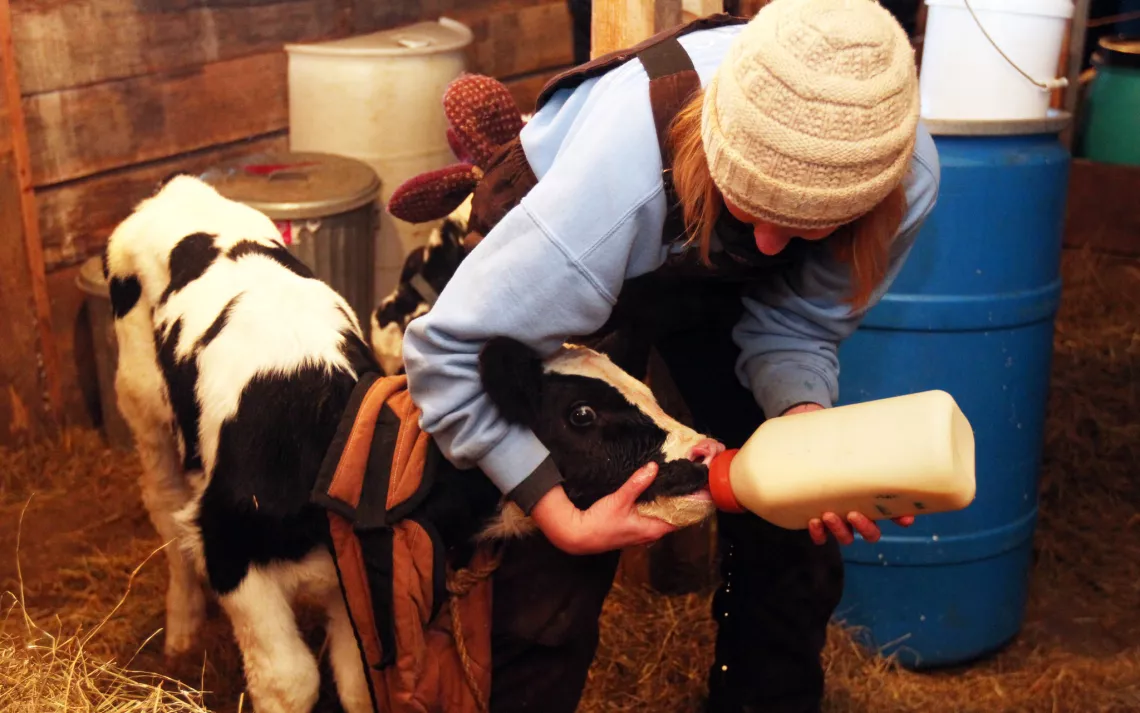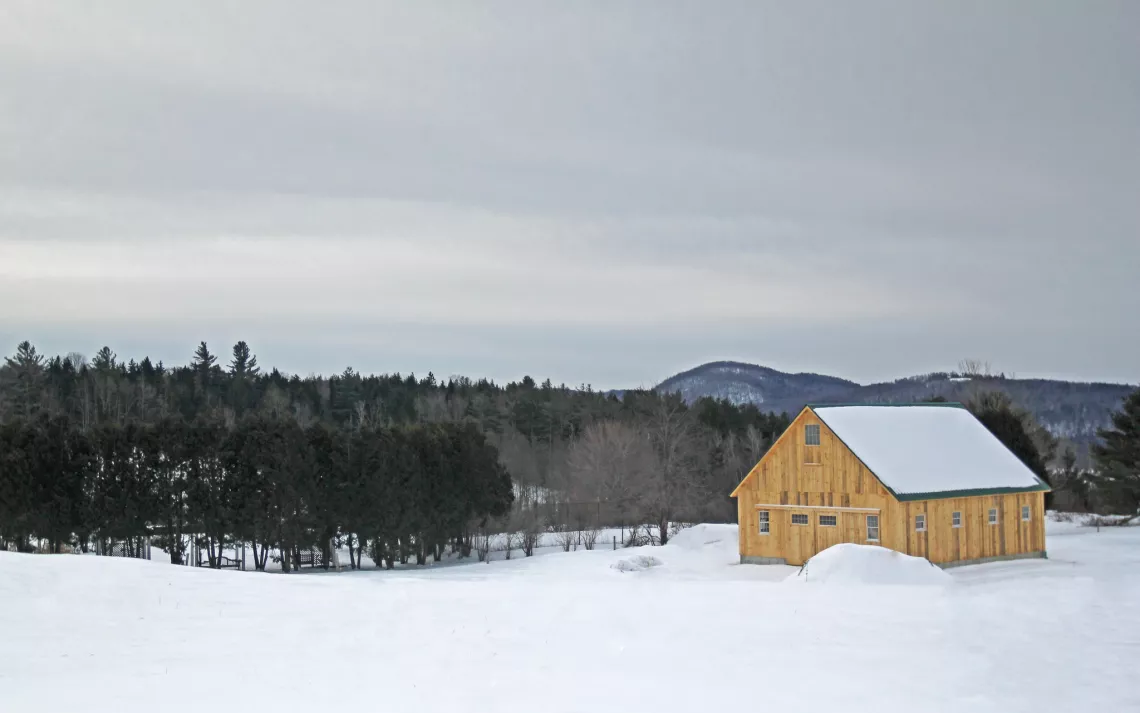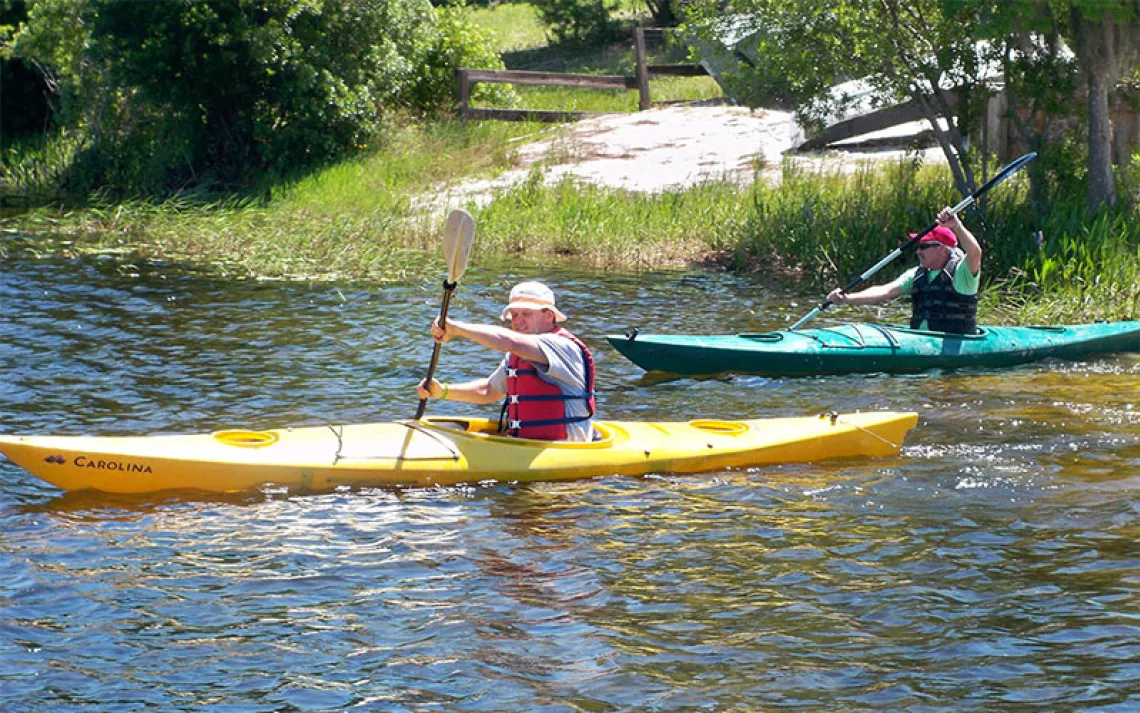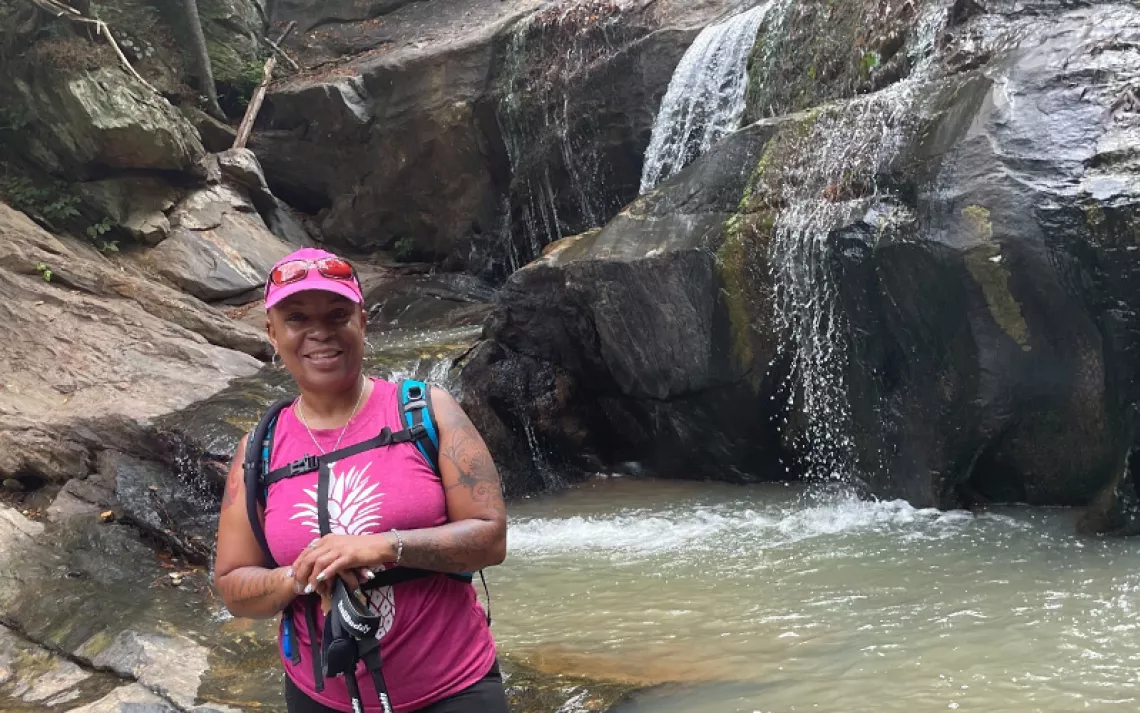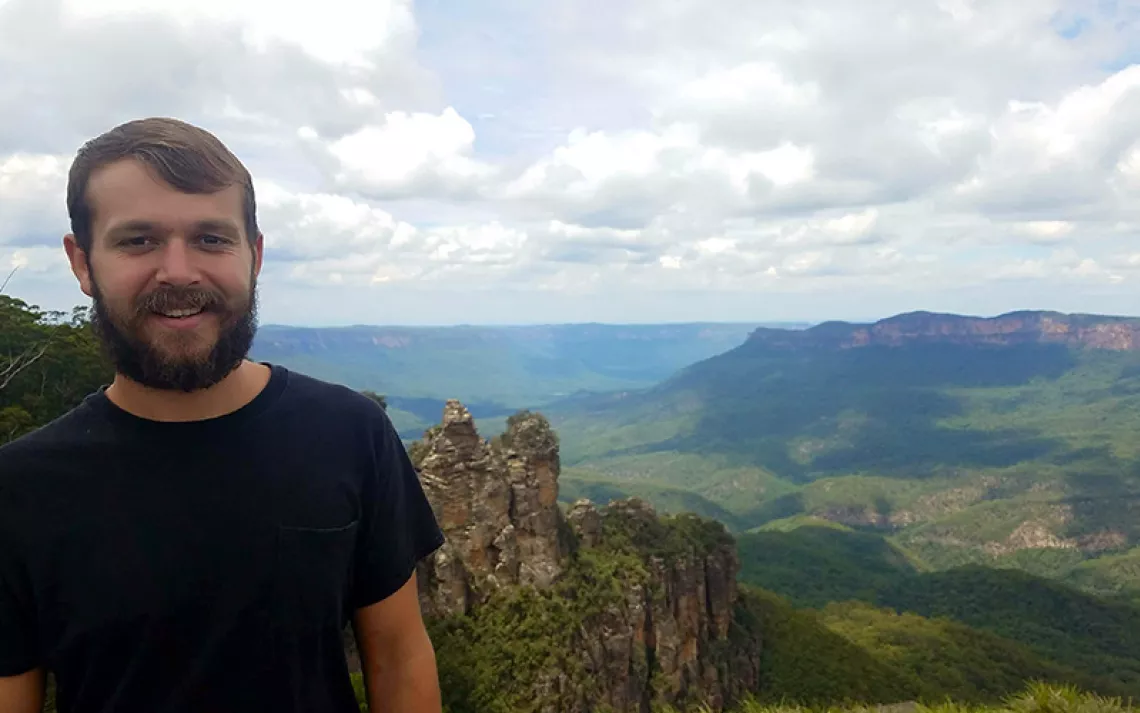From Soldiers to Sowers
When Adam Rice first visited Sterling College, he recognized it as something special. Nestled in Vermont's bucolic and blustery Northeast Kingdom, the small college for environmental stewardship is essentially an incubator for future eco-minded farmers. And Rice, a former marine without a college education, was looking for a green career. "Sterling's philosophy was my own," he says. "I have always considered myself an environmental steward."
Rice was 38 when he entered Sterling. “I was nervous about everything. I have a wife and son, and I was old enough to be most of these kids’ dad.” But the 125-person student body welcomed him.
“Sterling is as much about camaraderie and cause as it is about college," says Matthew Derr, the school's president. "It’s not unusual for a student right out of high school to be in a class with someone who’s in their 40s, or with a veteran. At Sterling, all of that diversity and all of those distinctions come together around environmental stewardship.”
Sterling isn’t your typical liberal arts college. Its fields are ploughed by draft horses and tractors, and its students can study permaculture design or even farrier science. No Sterling student gets through the four-year program—much less the first two weeks—without thrusting their hands into Vermont’s fecund soil. Most aspire to plein-air careers. They rise before dawn to work the fields, are in class by early morning, and do homework until 10 P.M. “We don’t have a demonstration farm,” Derr says. “We are a farm.”
Derr, who invited Rice to visit Sterling, wants to bring more vets to campus. Considering the average age of the American farmer is 57, he views the 2.7 million post-9/11 troops as the logical inheritors of U.S. farms. “A college has a responsibility as to how it educates the next generation and to address social issues," he says. “These men and women have skills that they can apply in an area of great need.”
Sterling recently announced a College-to-Farm Program for veterans, which will award $10,000 grants to five veteran student farmers upon graduation. Recipients will also be eligible for a $50,000 loan from a local credit union on the merit of a business plan they create during their senior year. That seed capital can be enough to kick off a food-related start-up.
“The opportunity to launch businesses that provide quality, healthy food consistently in small communities is the emphasis of the whole curricular model here at Sterling,” says Derr. “It was pretty obvious to us that this veterans program was the one missing link, and it’s hard for me to imagine a scenario where this doesn’t become something that we do year after year.”
Rice, who is studying conservation biology and is angling toward a career in watershed science, feels welcomed by the other dozen former soldiers on campus. After his first semester, another older marine veteran saw Rice on campus and gave him a big hug.
“He said he was so glad I was still there, glad that we’re both making it through this,” says Rice, chuckling. “I feel pretty at home now, and so does he.”
 The Magazine of The Sierra Club
The Magazine of The Sierra Club
